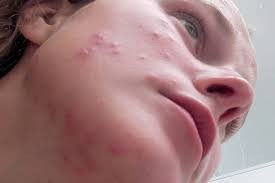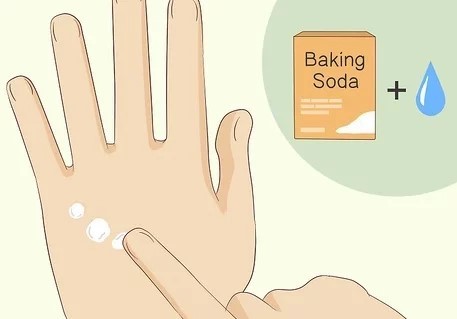Everyone dreads the thought of bed bugs in their living space. These vampiric critters often bite you at night without your knowledge because they inject an anesthetic into your skin. Even though their bites do not always cause serious health problems, they are exceedingly uncomfortable.
Bed bug bites often lead to itchy, red welts on your skin. No one in their right frame of mind would want to endure such agony and discomfort. This post offers guidance on treating bed bug bites and help you to know when you should ask for more serious help.
Table of Contents
How to Identify Bed Bug Bites
Most people dismiss itchy bumps in the morning as mosquito bites. Bed bug bites feel and resemble bites from other pests like mosquitoes, fleas and spiders. It is in your best interest to know how to differentiate bed bug bites on your skin and those from other pests.
Before you start thinking of what bed bug bites look like it is important to understand that not all people react to them. Some wake up with bumps in the morning, while others take a day or two to have any noticeable symptoms. According to Pest Control Technology, 30 to 60 percent of people do not develop symptoms from bed bug bites. If you are lucky, you would never get any prominent symptoms.
Bed bugs often feed at night hence, you would notice that most of the itching swellings would occur in the morning. These welts point to bites from bed bug if they are:
- Itchy
- Red, purplish or deep brown with a dark spot in the middle
- In a line or cluster of 3-5 bumps
- Blistered
Bed bug bites are on exposed skin, unlike flea bites which tend to occur around ankles. Mosquito bites, on the other hand, would be in a random pattern in your skin, unlike the clustered or lined bed bug bites. You will seldom feel a bed bug feeding on your blood because their saliva has anesthetic and anti-coagulant properties.
They also inject you with nitrophorin, a chemical that dilates your blood vessels to supply more blood for feeding. Most of the time, Bed bug bites are concentrated on your upper body parts, including:
- Face
- Neck
- Arms
- Hands
- Shoulders
What to Do When You Find Bed Bugs Bites On Your Skin
When most people think of treating bed bug bites, they cannot look beyond dealing with the itchy welts on their skin. You must understand that any treatment is ineffective unless you deal with the root cause of the problem. There are several ways to get rid of bed bugs. Here are some that you should know:
- Vacuum your home thoroughly and seal the vacuum bag before disposing it.
- Steam-clean everything around your home, including furniture, mattresses, and household appliances.
- Wash and dry all washable items at high temperatures. Adult bed bugs die at 119°F (48°C), and their eggs require temperatures above 125°F (52°C). Please note that you need to take a different approach when getting rid of bed bugs in woolen items.
- Seal cracks and crevices that may offer potential hiding spots for bed bugs.
Health Effects of Bed Bug Bites
Bed bugs don’t directly cause or transmit diseases. Still, their bites can trigger more serious health effects than simple welts on your skin. Serious health implications may arise based on how you handle the bites and your psychological response to the bed bug problem.
The health implications of bed bug bites differ from one individual to another. They range from the mild itchy bumps on your skin to the more severe psychological implications, anaphylaxis, and blood loss. Nonetheless, most people experience itchy, red, and swollen bumps on their skin that disappear within days, even without medical intervention.
Persistent itching and the thought of more bites to come may drive you into a state of mental distress. A publication in the National Library of Medicine noted some people experiencing psychological symptoms that included:
- Hypervigilance ( obsessively looking out for bed bugs)
- Flashbacks
- Nightmares
- Anxiety
- Insomnia
- Avoidance behaviors
The American Academy of family physicians highlights a few cases of extreme reactions to bites resulting in anemia and asthma. However, you do not need to worry about these as they are sporadic cases resulting from massive infestations. You can avoid such severe cases by using bed bug repellent essential oils and installing effective monitoring tools.
Home Treatments for Bed Bug Bites on Your Skin
There are several bed bug bite treatment options that you can use depending on your body’s reaction to the bites. Some people do not react to bed bug bites, while others experience moderate to severe reactions. Here are some treatment options you can use at home when experiencing mild to moderate reactions:
Soap and water: Most bed bug bites heal on their own. Wash the welts with soap and water, dry and give them time to stop itching. Do not scratch it, as open sores are likely to develop secondary infections.
Apply home remedies to relieve itching: There are several home remedies that can ease itching associated with bed bug bites: Here are some you should know:
- Applying baking soda paste and water on bed bug bite marks can relieve itching on the skin. Once you apply the paste, leave it to dry on your skin for an hour before you wash it off.
- Lemon juice, St John’s wort, and witch hazel possess natural astringents. Dabbing any of them on your skin using a cotton ball will relieve itching.
- The aloe plant is known for its excellent antibiotic and anti-fungal properties. Applying Aloe Vera gel on bed bug bites relieves itching.
Over-The-Counter prescriptions: Over-The-Counter (OTC) prescriptions like steroid creams can minimize inflammation and itching that arise from bed bug bites. You can buy them at any pharmacy near you and follow the instructions in the packaging to apply.
Calamine lotion: Calamine lotion is effective in minimizing itching when you apply it on the bite marks. It also dries the rashes on your skin and protects you from the possibility of secondary infections.
When to See a Doctor about Bed Bug Bites
Do not ignore the severe symptoms of bed bug bites. Some allergic reactions may be life-threatening, leading to other body complications. Consult a doctor if you have these severe symptoms:
- Asthma
- Anemia
- Anaphylaxis
- Pus-filled bump that is persistent even with ointment
- Fever
- Nausea
- Persistent visibly swollen vein in the neck at a bed bug bite resulting in a headache
Depending on the severity of your symptoms, the doctor may also prescribe antihistamines, open sore creams, pain killers, corticosteroid cream, anti-itch creams, oral antihistamines and even psychological counseling. Do not prescribe these for yourself and follow the doctor’s directions.
Preventing Bed Bug Bites
There is no full-proof way of preventing bed bug bites from biting you. That said, prevention is always better than treatment, and you can take some preventative measures. Here are some common ones that you should know:
- Clean your beddings and surrounding as often as possible. Though not restricted to it, bed bugs love clutter and dark and moist environments.
- Always check for bed bugs in your sleeping area. Take special attention to the seams and folds of your bedding, cracks, and corners of your bed and furniture, and cracks and crevices of your walls. Any crack or peeled paint should be filled or redone to reduce bedbug hiding places.
- There are a lot of bed bug repellant agents out there that can be used to prevent bed bugs from biting you. Some of them can be used on your skin, while others can be sprayed on your beddings, furniture, and walls. These eco-friendly bed bug repellant options include essential oils, diatomaceous earth, and silica gel.
- Alternatively, you could encase your mattress in bedbug-proof covers.
- Take time to regularly clean your beddings with hot (possibly scalding) water to get rid of bed bug eggs and adults that may have snuck in.
- Exercise caution when bringing any used furniture or items into your home. They may be the Trojan horse that lets bed bugs enter your home.
Final Thoughts
Treating bed bug bites is essential for your comfort, although they typically heal after a week or two. Failing to treat bed bugs means these vampiric critters will keep feeding on your blood. Treating bed bugs as soon as you uncover them in your home is in your best interest.
FAQs
What is the best treatment for bed bug bites?
Depending on the intensity, soap and water can do the trick. Mild steroid creams, antihistamines, anti-itch creams and pain killers may be taken.
What helps bed bug bites heal faster?
There are no magic pills for bed bug bites. Most of these treatments work with time. Give it time.
How can you get rid of bed bug bites instantly?
Healing bed bug bites take a little time. If you are lucky, they will go on their own within hours. Do not scratch the itch. It only worsens it.
Do bed bug bites require medical treatment?
Most do not require medical interventions. However, a doctor must take care of severe symptoms like secondary infections and anaphylaxis.
How long do bed bug bites take to heal?
They generally differ from person to person. They typically clear up within a week or two.


